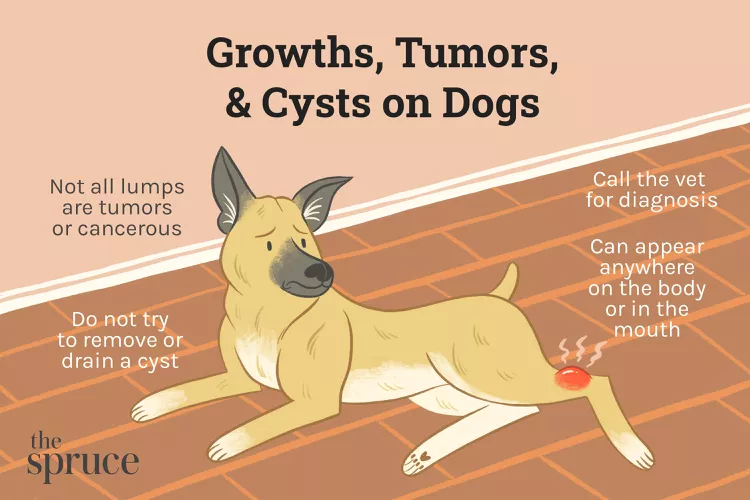
When vacationing in nature, it’s only right to think about bringing your pet along with you to enjoy the great outdoors. Before planning your visit to a national park, make sure you thoroughly research the pet policy of the park or parks you plan to visit so that you are not caught off guard.
There are 63 national parks in the United States. Truly pet-friendly parks are the ones that allow pets in most areas of the park where people are allowed, such as trails and overlooks; however that is not always the case. While most national parks tolerate pets in some capacity, some strictly restrict pets to certain areas such as parking lots, campgrounds, or roads. This is often for the safety of both the pets and the other wildlife in the park.
At pet-friendly national parks, the National Park Service (NPS) has a set of guiding principles called B.A.R.K.:
Some even offer park ranger-led programs through which your dog can become a “B.A.R.K. ranger.”
In addition to the basic principles, NPS has a set of more thorough regulations that apply to all parks. Among these rules, pets are banned indoors (excluding service animals), prohibited from making unreasonable noise for the location (e.g. excessive howling or barking that impacts other visitors or wildlife), and owners cannot leave pets tied up unattended.
On top of the nationwide regulations, many individual parks have specific rules and regulations, especially related to where pets are allowed. The most strict parks may restrict pets to developed areas like parking lots only (including pets who are held or in carriers), but even the most pet-friendly parks likely have some restrictions as well, such as prohibiting pets on especially challenging trails, like the Old Rag hike in Shenandoah National Park.
NPS has an interactive map users can click to read about the pet policies of the different national parks as well as hundreds more national monuments, battlefields, nature preserves, and other historic areas.
Based on these rules, the following are some of the most welcoming national parks for pets:
Traveling with your pet can be enriching for both pet and owner and an opportunity to bond, but preparation is key to a successful visit to a national park.
A lot of parks have heavy restrictions related to pets, so it’s important to think through if it’s worth bringing your pet with you. If you choose to bring them, you may be limited in what activities you can participate in and places you can stay.
Knowing the specific rules of the park you plan to visit is crucial for enjoying yourself and respecting the national parks. Disobeying the rules could end up being harmful to wildlife, other visitors, or even your pet.
In addition to traveling with basic items like food, water, treats, and toys, it’s important to be prepared for different scenarios on your trip. You should travel with a pet first aid kit and make sure you have your pet on the proper flea, tick, and heartworm medications to prepare for extended time outdoors. Also, think through what you will do if you want to do one of the hikes or activities where pets are not allowed. Do you have a backup plan for your pet?
You will be held responsible for your pet’s behavior, so make sure to keep them in check. Practicing basic commands and manners in public before your trip can make a world of difference once your pet is in an usual place.

Tumors, Growths, and Cysts in Dogs
Tumors, lumps, growths, or cysts are commonly found on dogs. Learn the causes, treatments, and preventative measures.
Eye Injuries and Infections in Dogs
Dogs can suffer eye injuries that range from mildly irritating to serious medical emergencies. Learn the causes, treatment, and prevention.
Vestibular Disease in Dogs
Vestibular disease affects a dog's balance and eye movements. Find out about the signs, causes, and treatment of vestibular disease in dogs.
Is Acetaminophen Safe for Dogs?
Acetaminophen is used by humans for pain and fever relief, but is it safe for dogs? Here's what you need to know before giving your dog acetaminophen.
Can Dogs Eat Zucchini? Everything to Know About This Hardy Summer Squash
Zucchini is a nutritious food that's safe for dogs to eat in moderation. This low-calorie, high-fiber vegetable can be incorporated as a healthy treat in a dog's balanced diet. Learn more about its health benefits, potential risks, and how to prepare it.
Can Dogs Eat Popcorn? What You Need to Know for Movie Night
Dogs can eat popcorn, but there are safety concerns. Find out how to safely feed your dog popcorn and what you should do if you're concerned.
65 Irish Cat Names
Irish cat names can pay homage to historical places, local cuisine, famous Irish actors and musicians, or other wonderful aspects of the Emerald Isle.
46 Egyptian Cat Names
Whether inspired by notable Egyptian deities, locales, or pharaohs, Egyptian cat names can bring out the divinity of your noble feline companion.
Are Ant Traps Safe for Cats?
Here's how to know if ant traps are safe for cats and how to keep yours free from harm if you have an ant problem.
The 6 Best Cat Nail Clippers of 2024 for a Safe Trim
Clipping your cat's nails can save your furniture and keep your kitty comfortable. We asked veterinarians for their cat nail clipper recommendations.
Is Neosporin Safe for Cats?
A brief summary of concerns a cat owner should be aware of before putting Neosporin on their cat, plus tips for things they can use at home instead.
Can Cats Eat Strawberries? How to Safely Share This Summer Berry
Although cats are primarily meat eaters, strawberries may be an interesting and tasty snack for your feline friend. Find out the risks of feeding strawberries to cats and how to safely let your cat enjoy this fruit.
Cute Pictures & Facts About Calico Cats & Kittens
Learn fascinating facts about calico cats, including photos, the genetics behind this color combination, and common folklore and traditions.
12 Most Popular Cat Breeds for Feline Lovers
These 12 cat breeds, like the Siamese and Sphynx, are known for their unique appearances and personalities. Learn what makes them so popular.
Balinese: Cat Breed Profile, Characteristics & Care
The Balinese cat is playful, sociable, elegant, intelligent, and a touch on the vocal side. Learn about the Balinese, including appearance, temperament, health, and care needs.
Why Cats Don't Always Cover Their Poop
Cats may not cover their poop for a few different reasons, including being territorial, sending a message to their owner, and not liking the litter.
Cavapoo: Dog Breed Characteristics & Care
The Cavapoo is a hybrid of the Cavalier King Charles spaniel and a toy or miniature poodle. Learn why these teddy-bear-looking dogs make the perfect addition to your family.
Why Dogs Eat Poop and How to Stop Them
Is your dog eating poop? Some dogs do this because of stress or illness. Learn how to prevent stool eating, or coprophagia, in dogs.
Can Dogs Get Depression? How to Help Your Sad Dog
Can dogs get depression? Learn about the signs of depression in dogs and find out how to help your sad dog.
4 Reasons Why Your Dog Licks Their Butt
Butt-licking in dogs can be a part of normal grooming, but excessive butt-licking is not normal. Read about the most common reasons for this behavior.